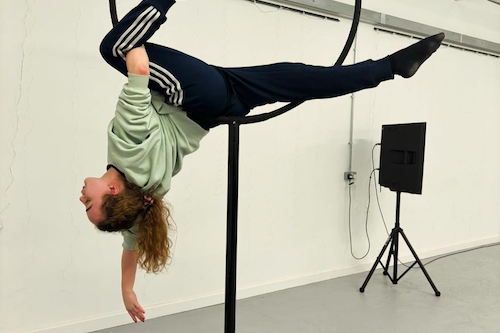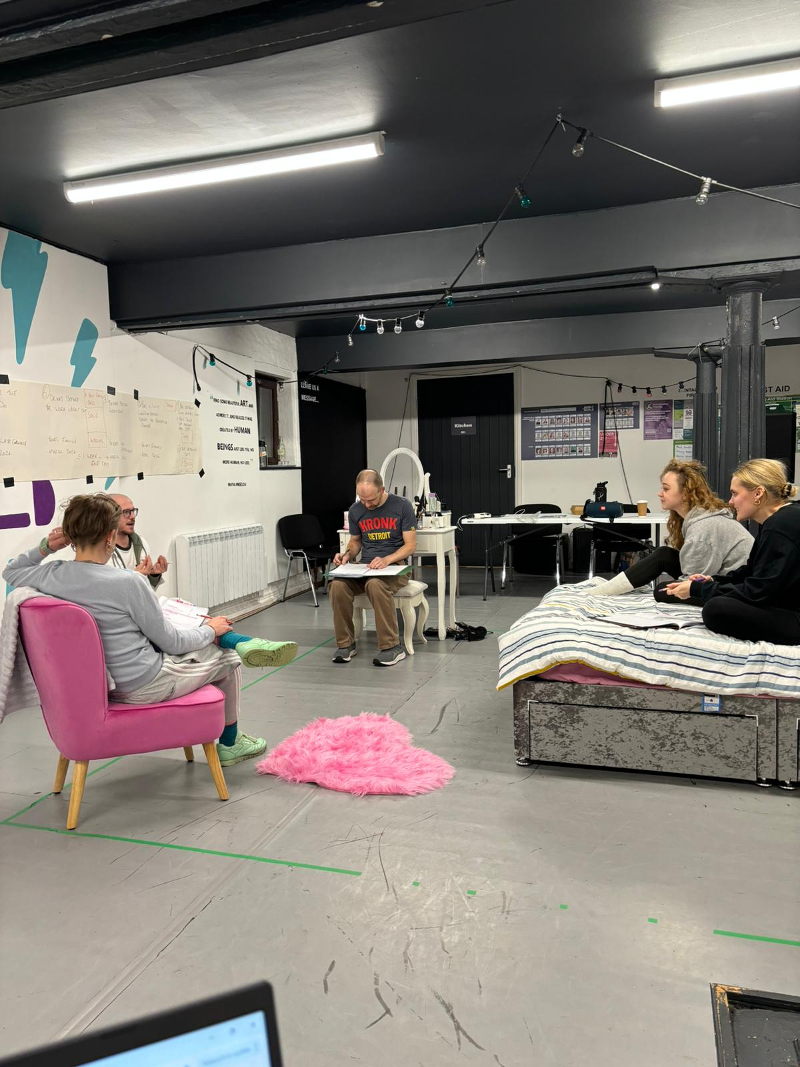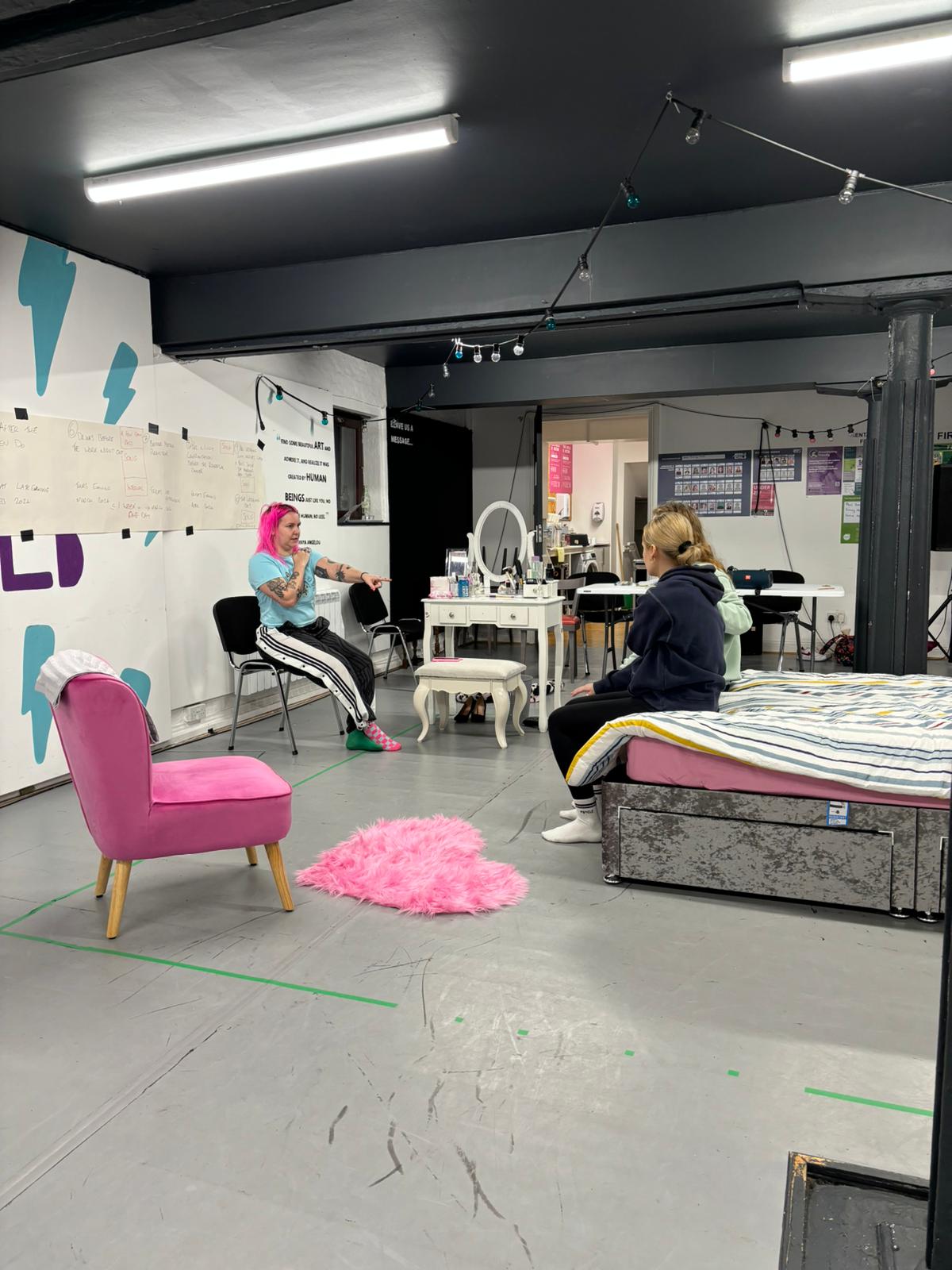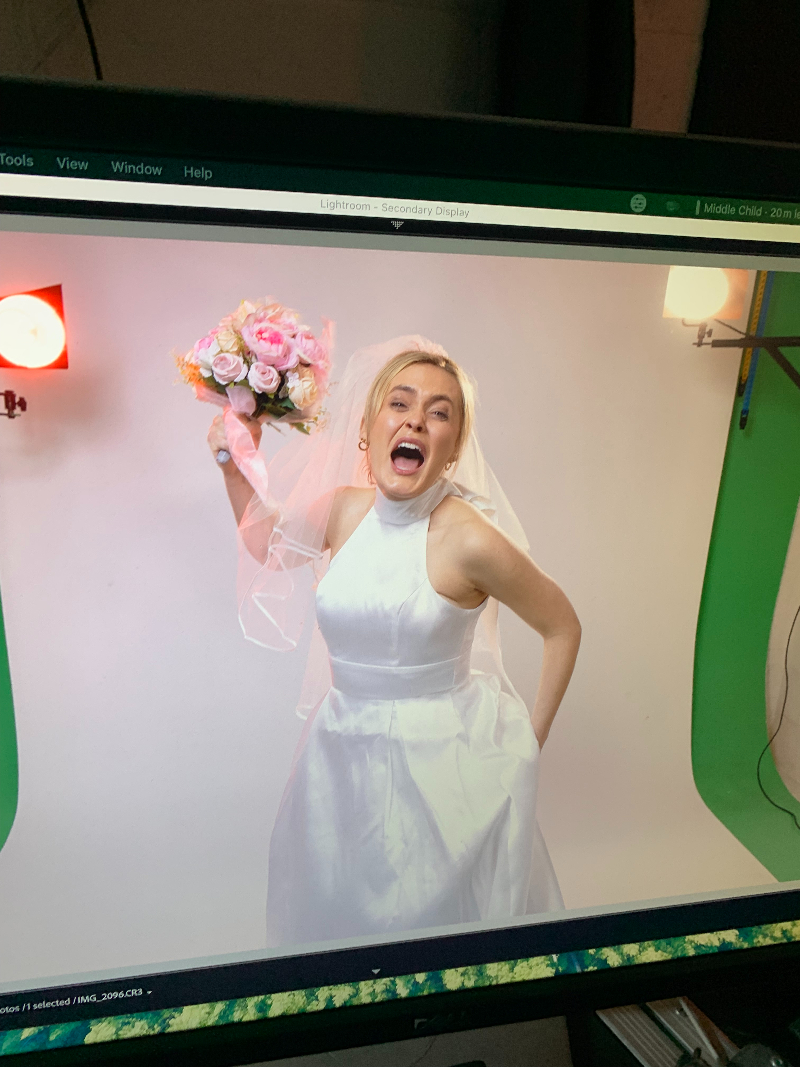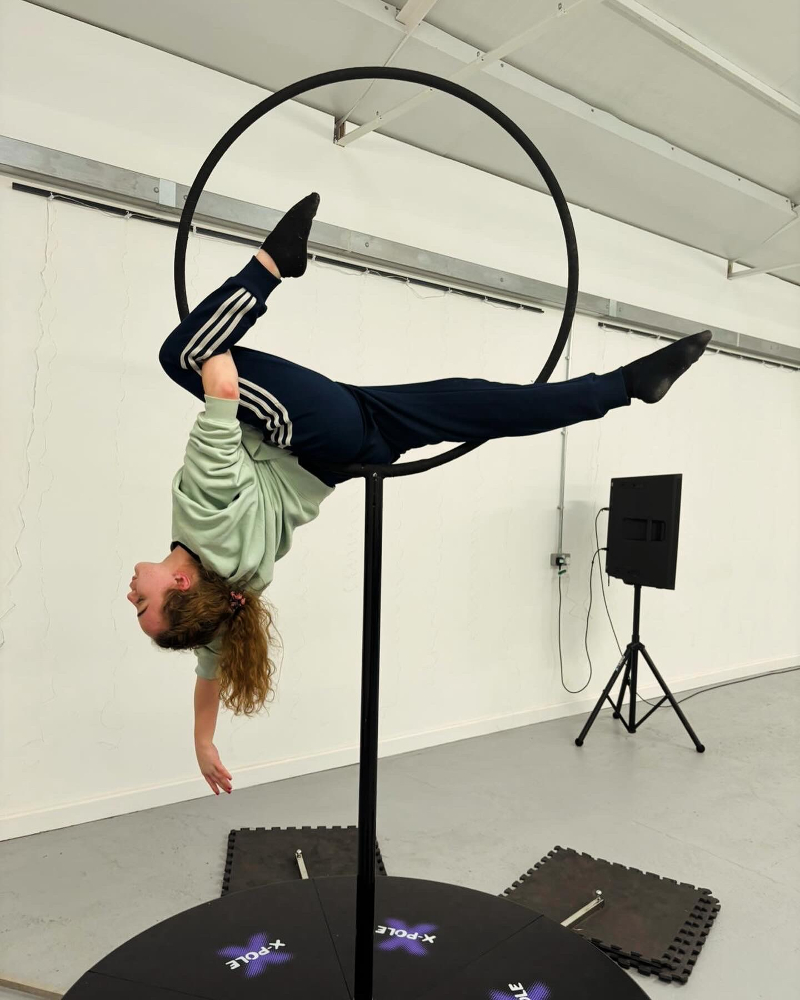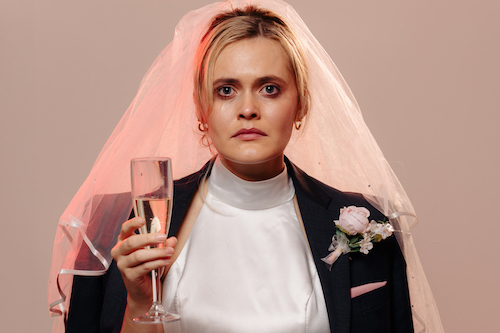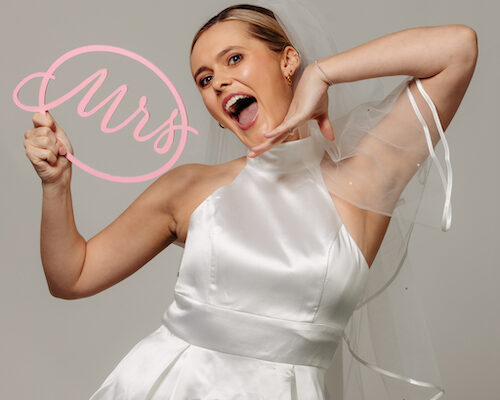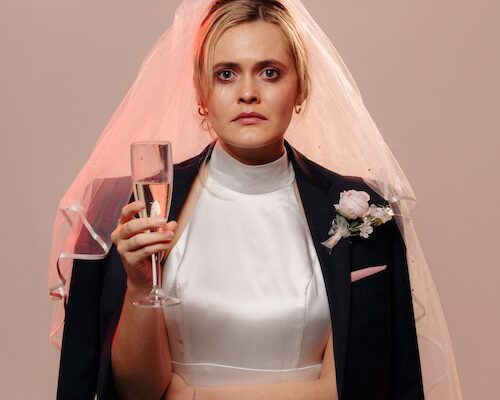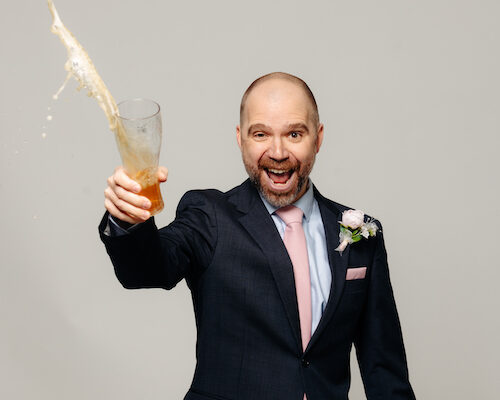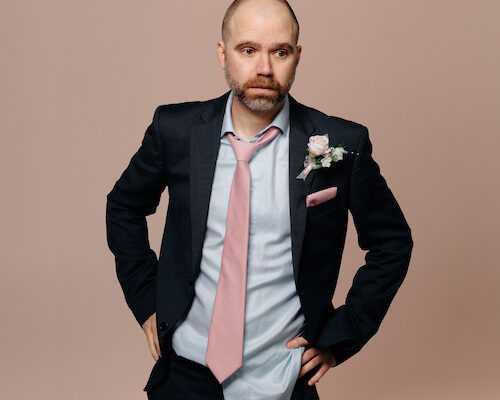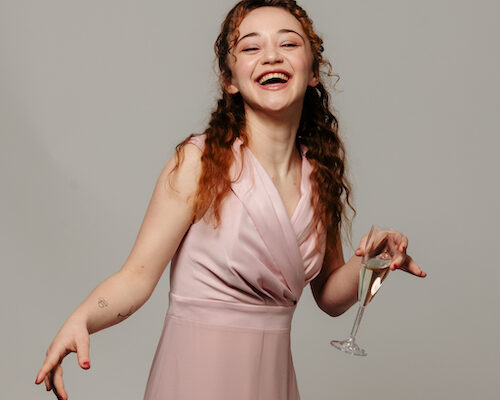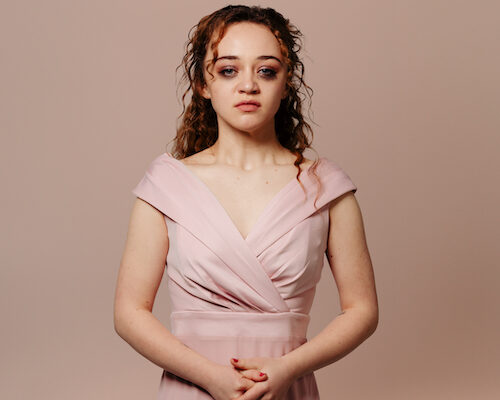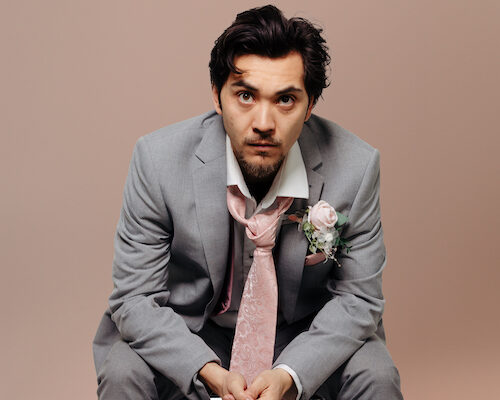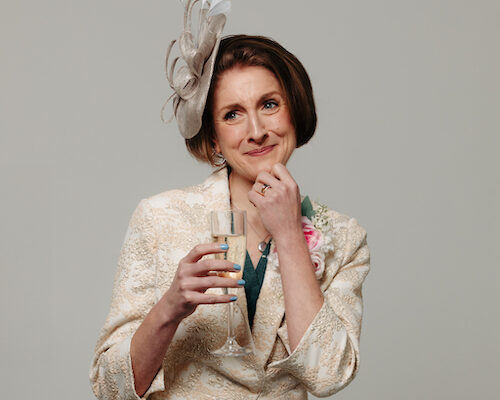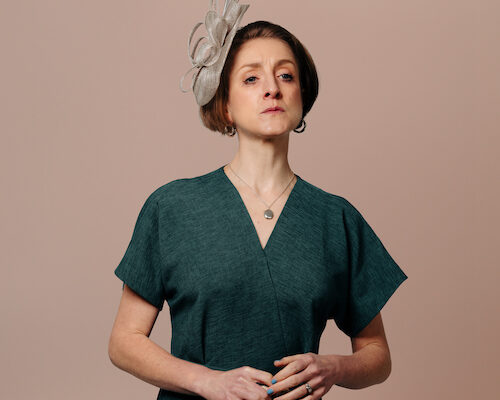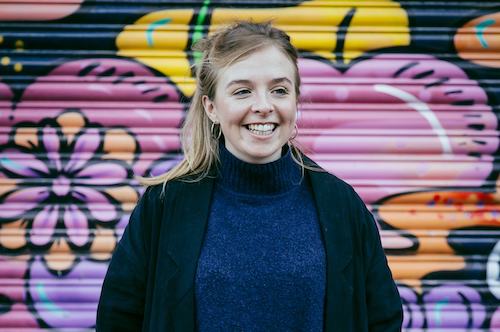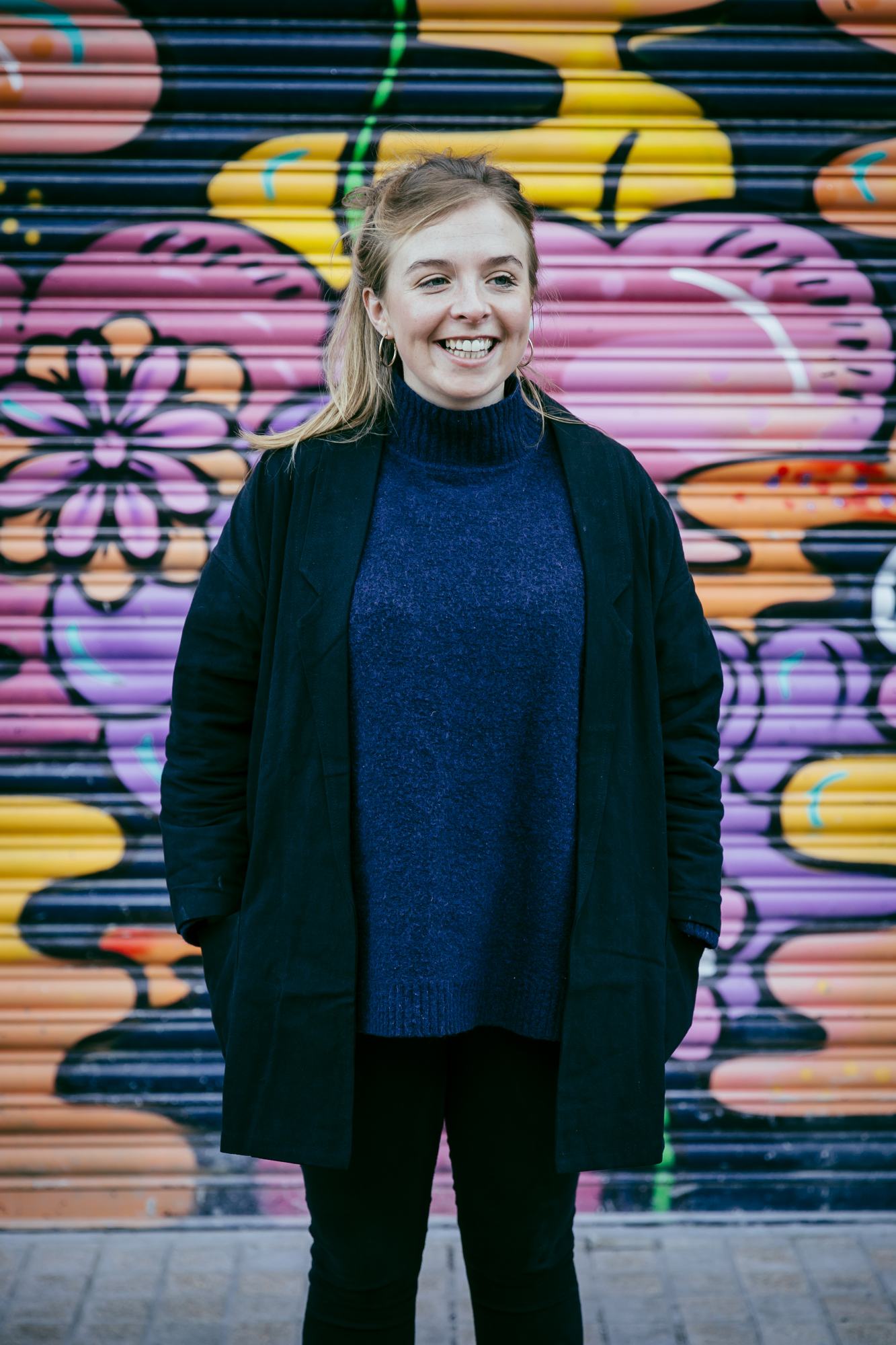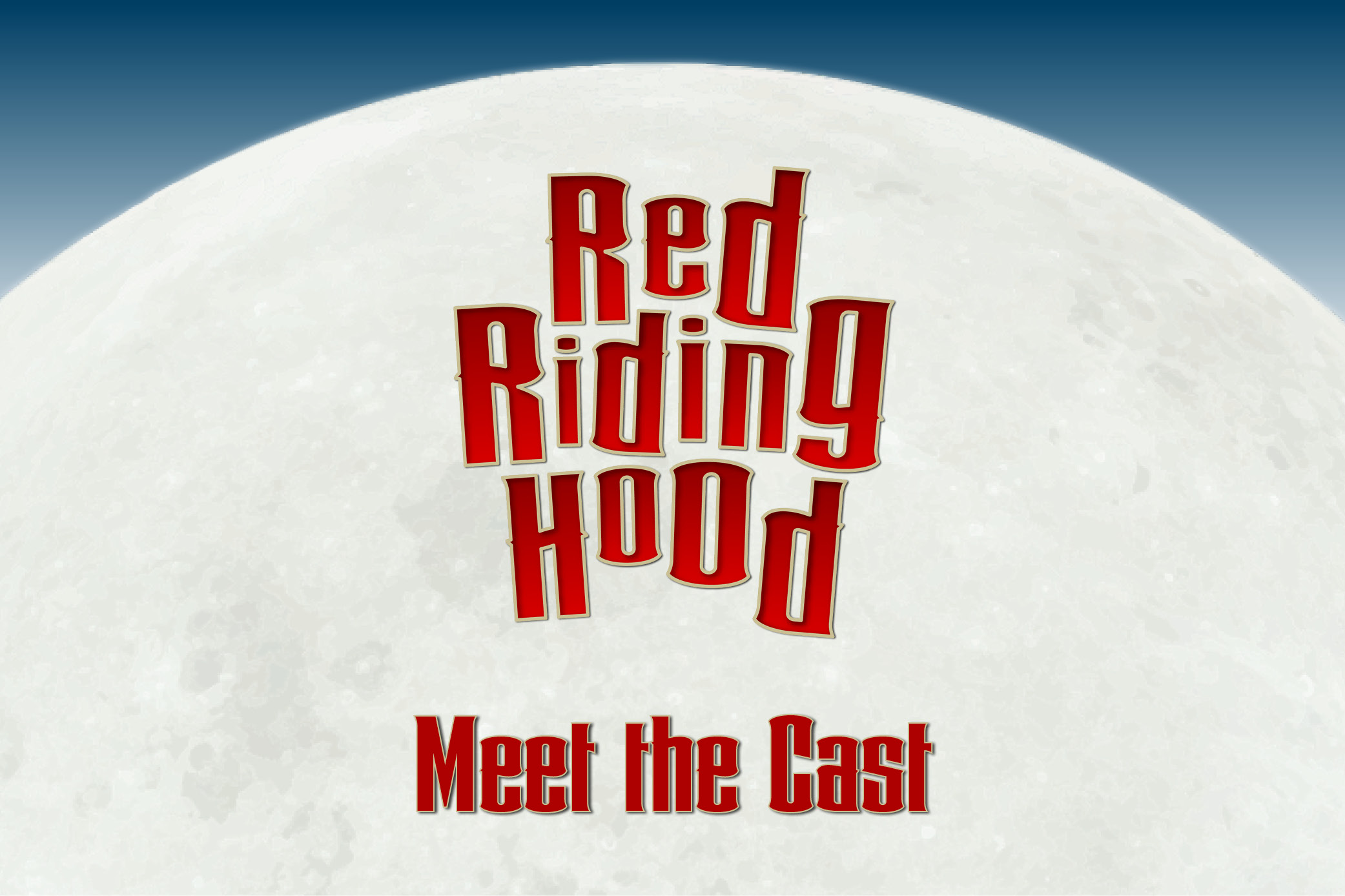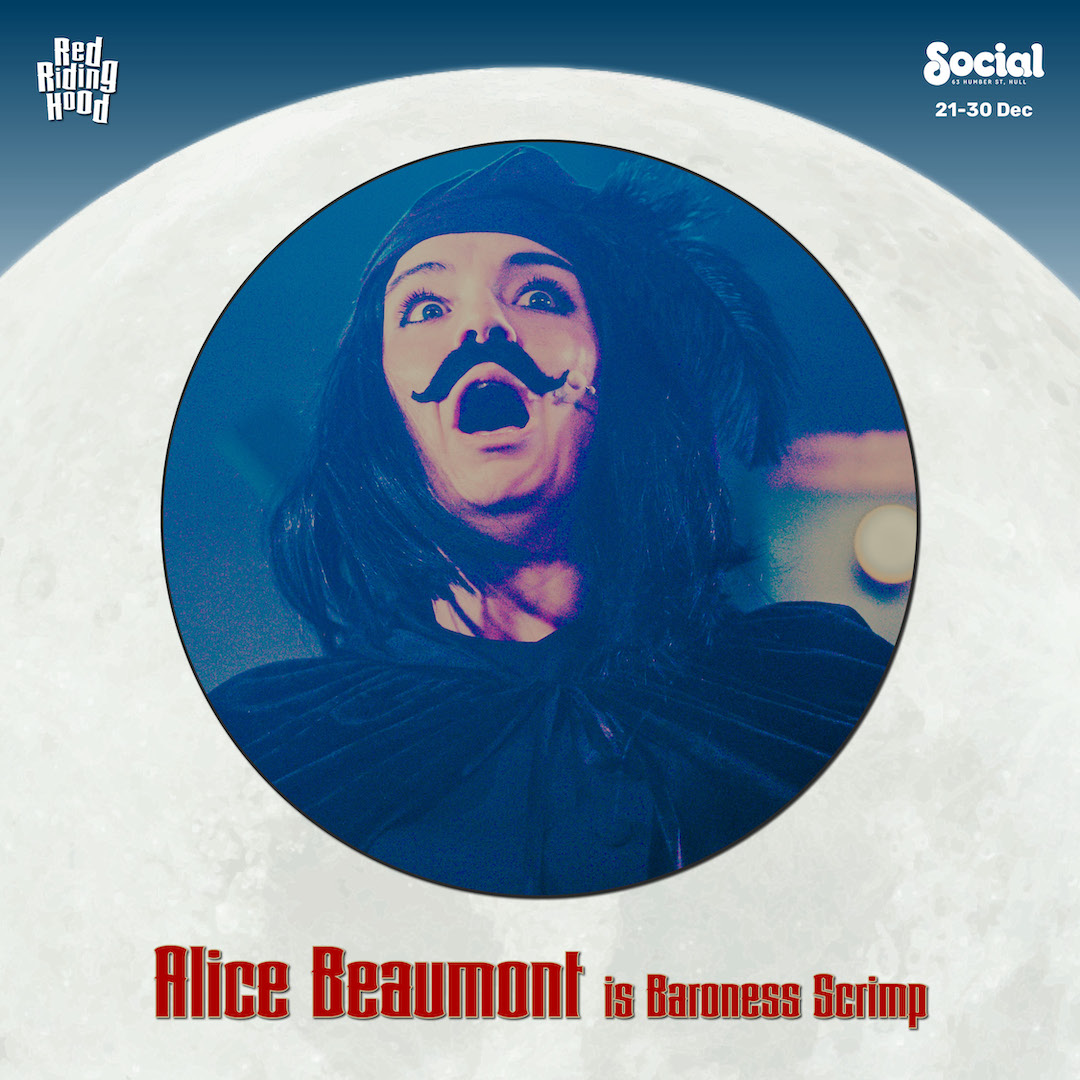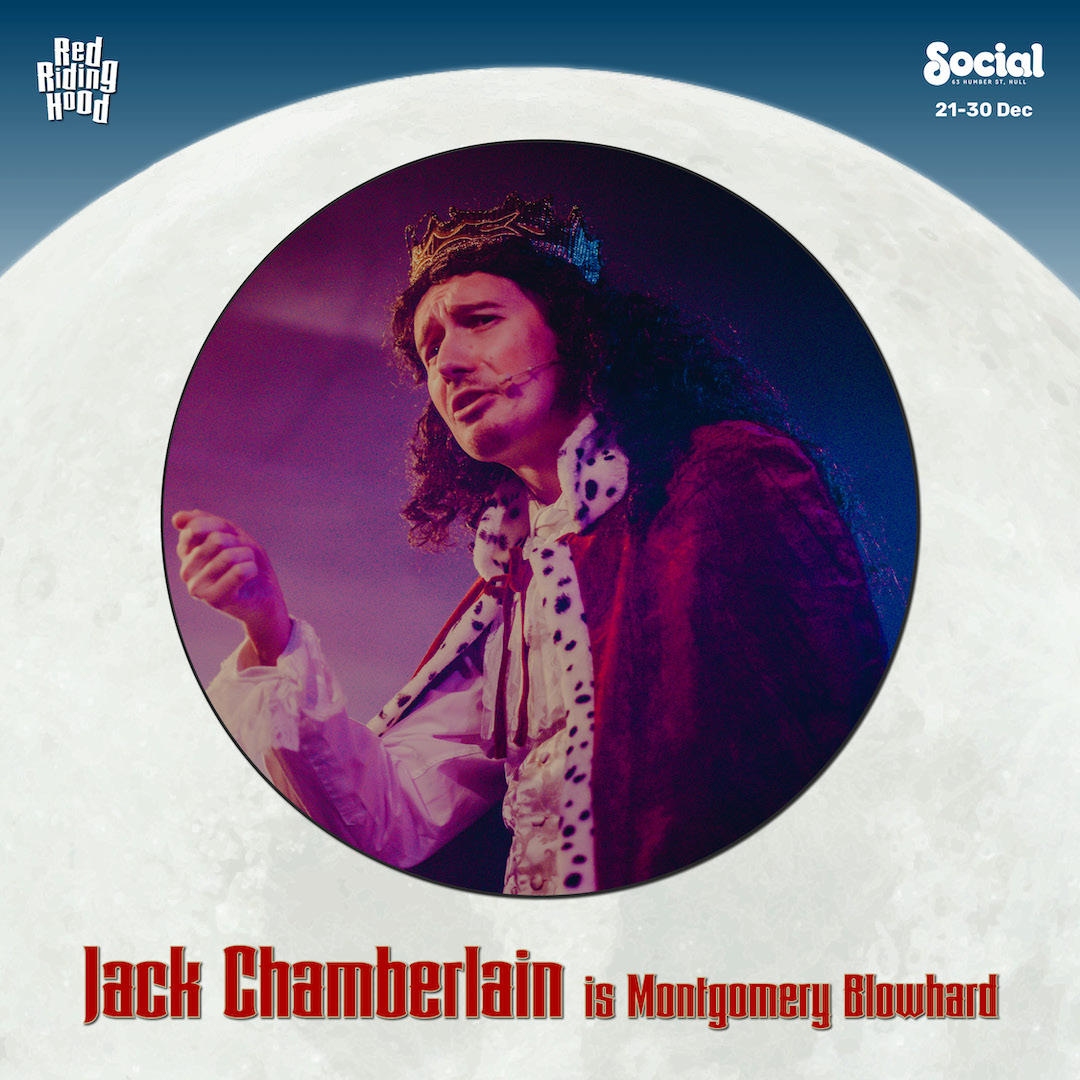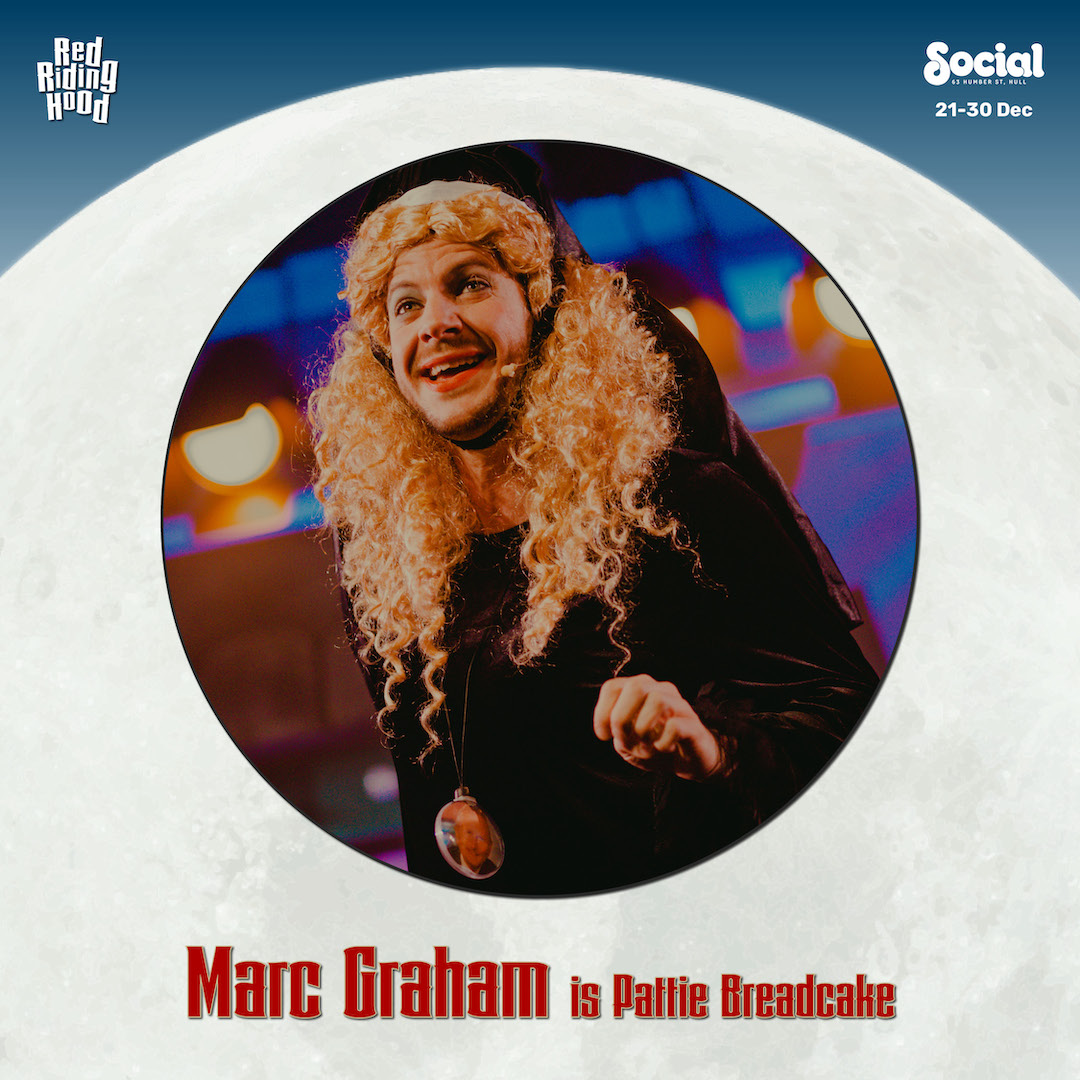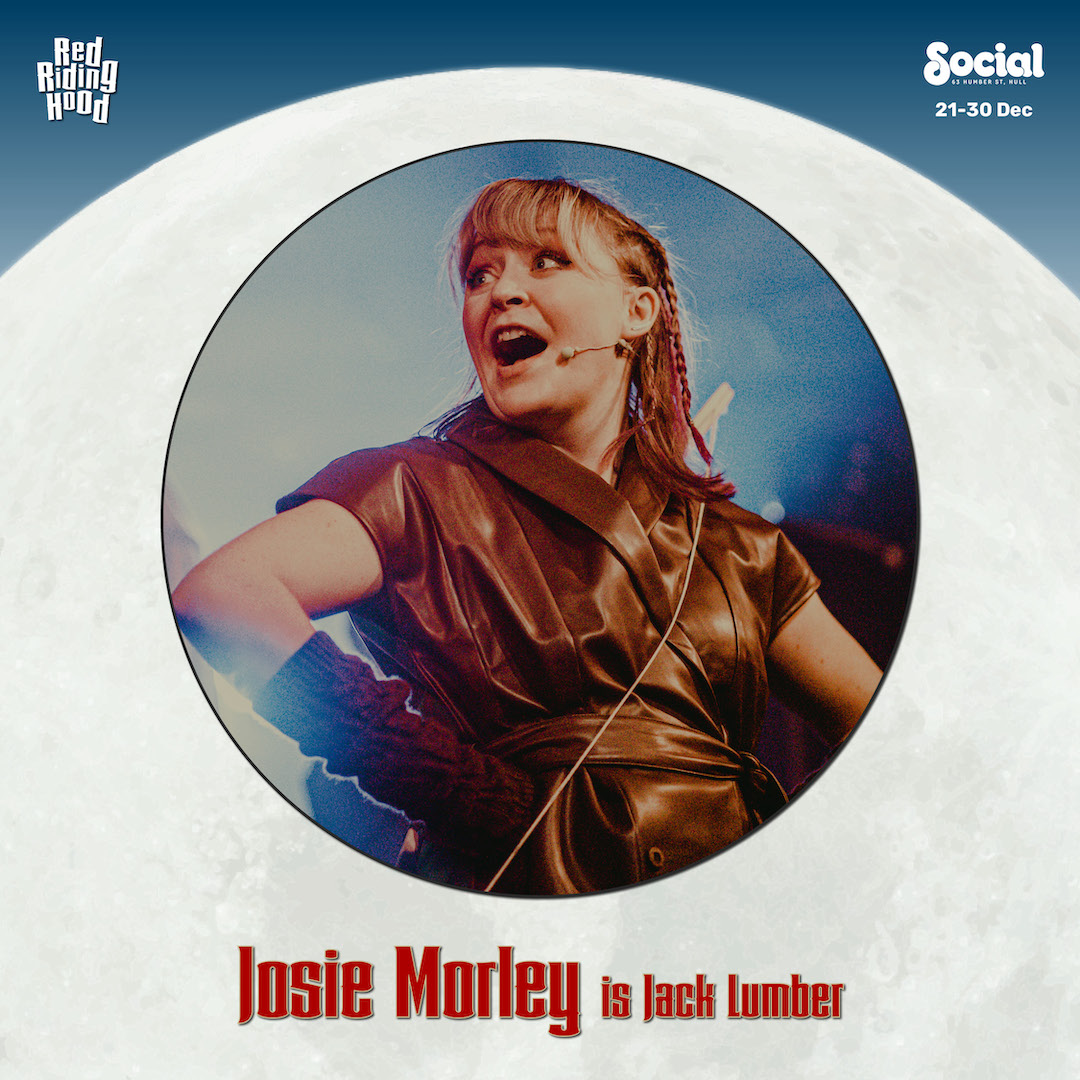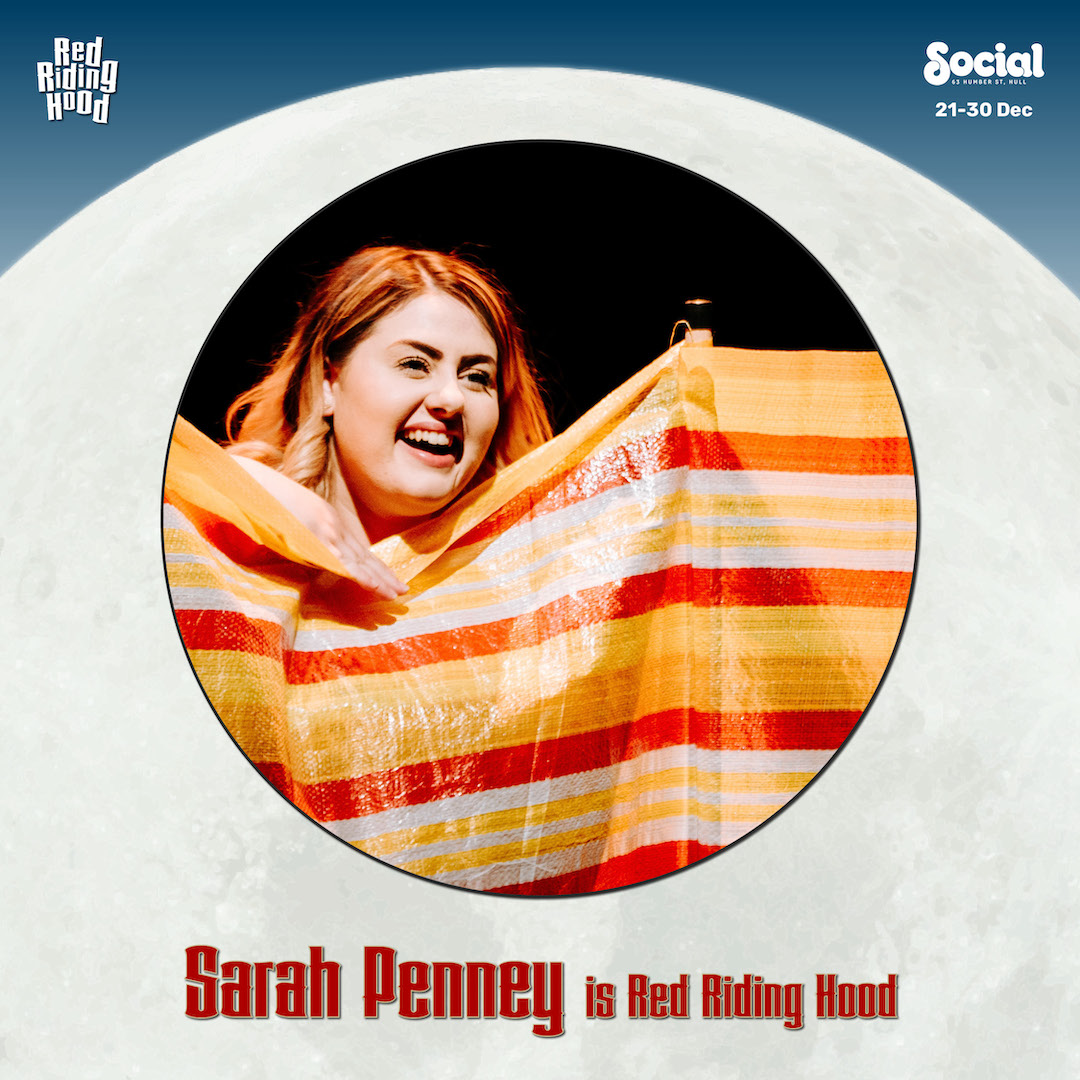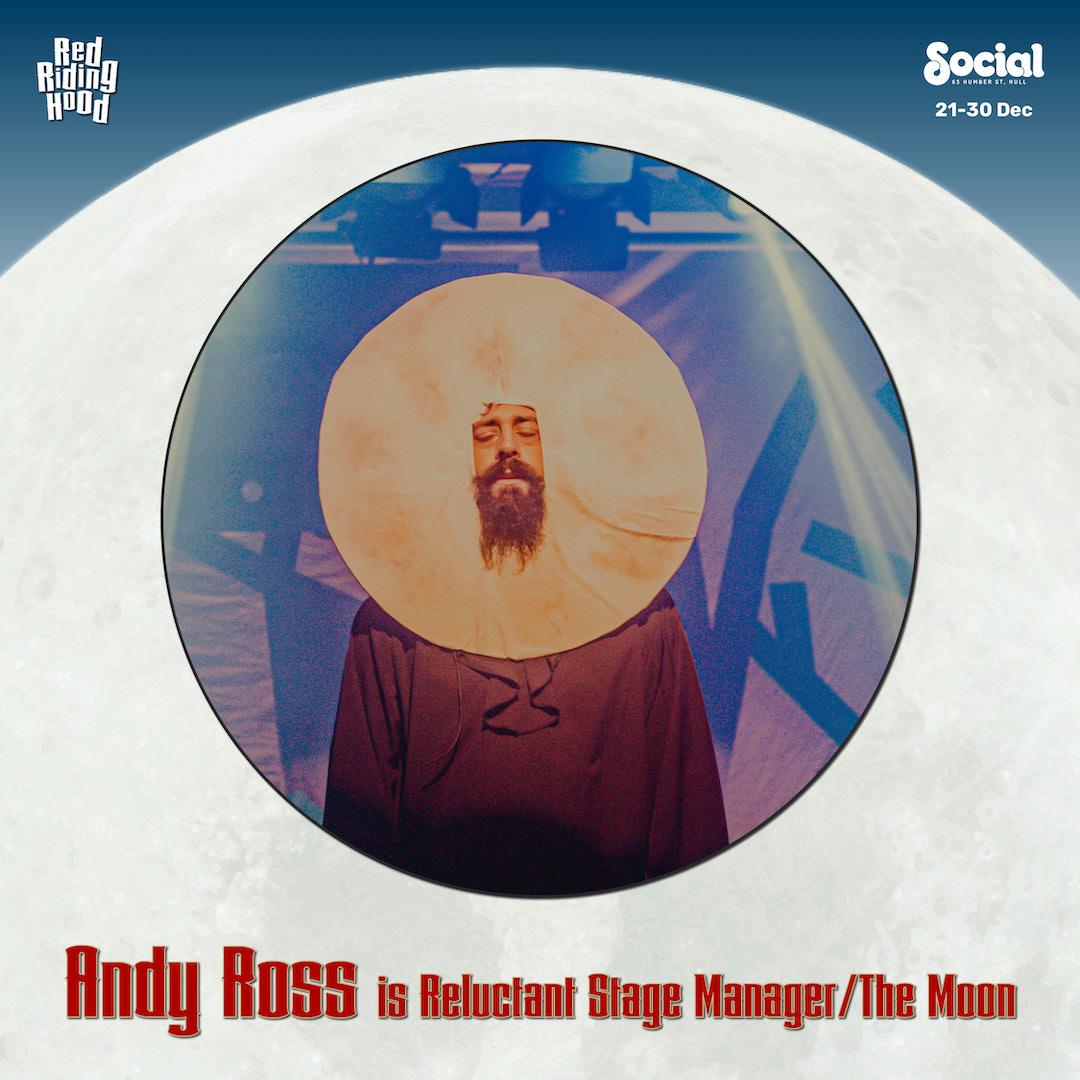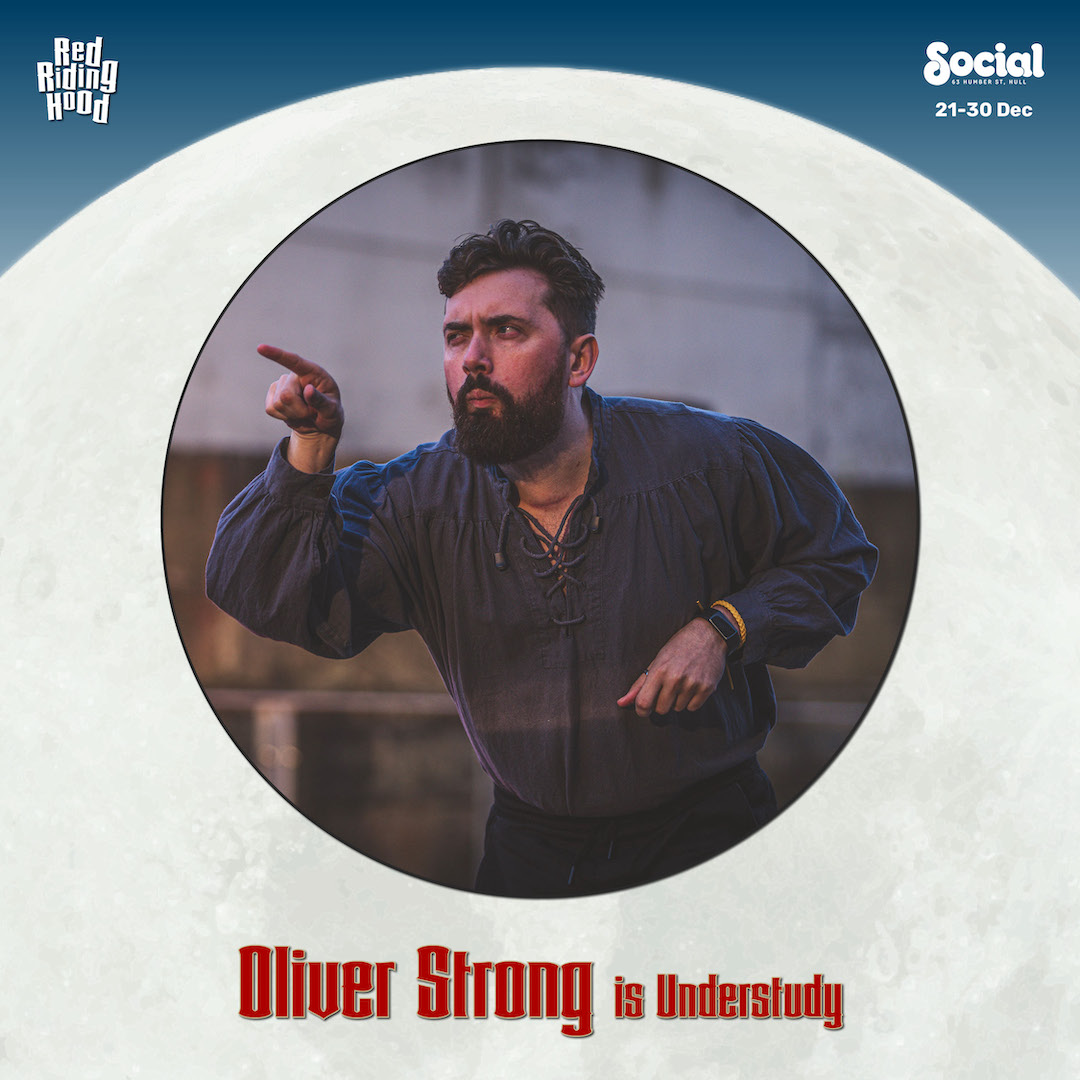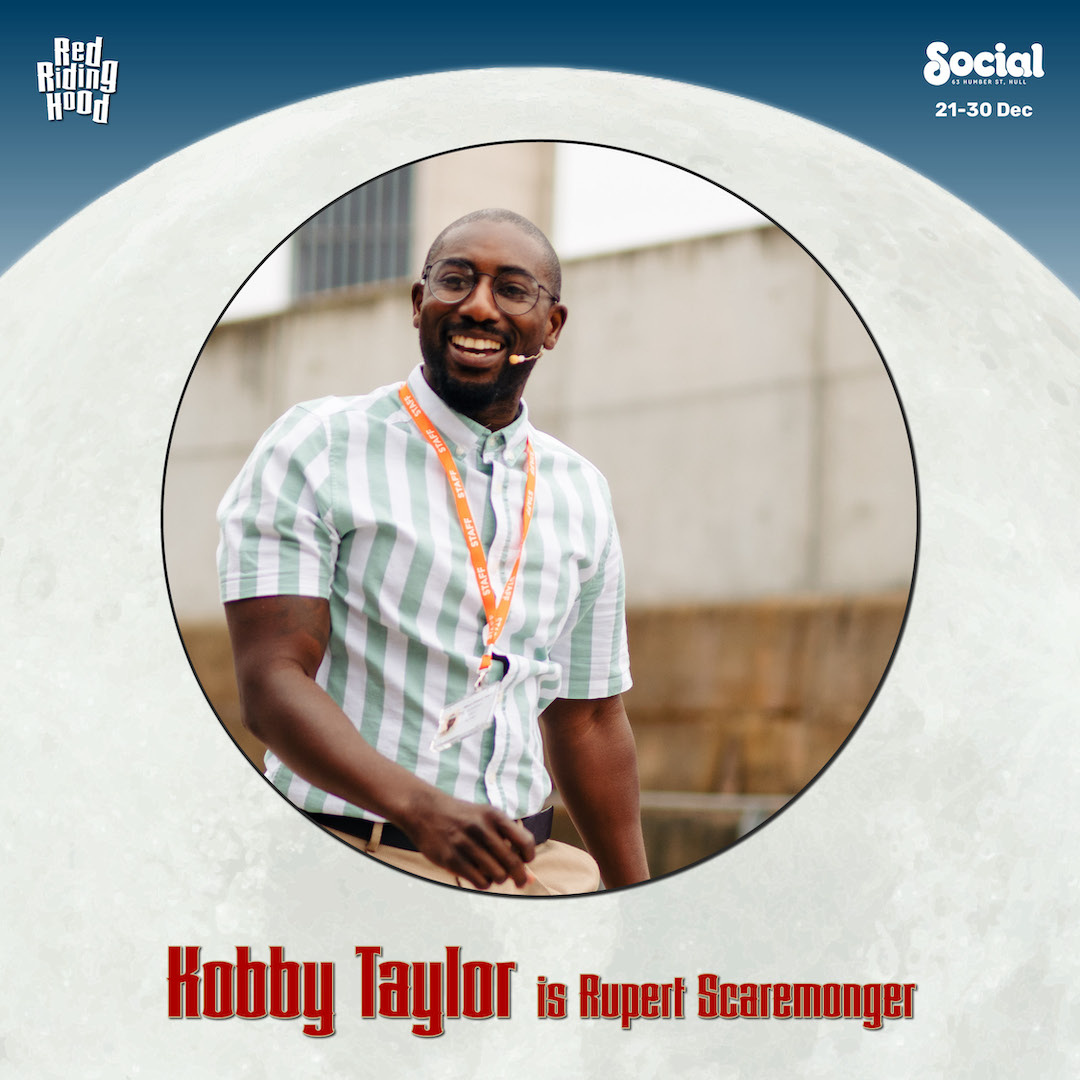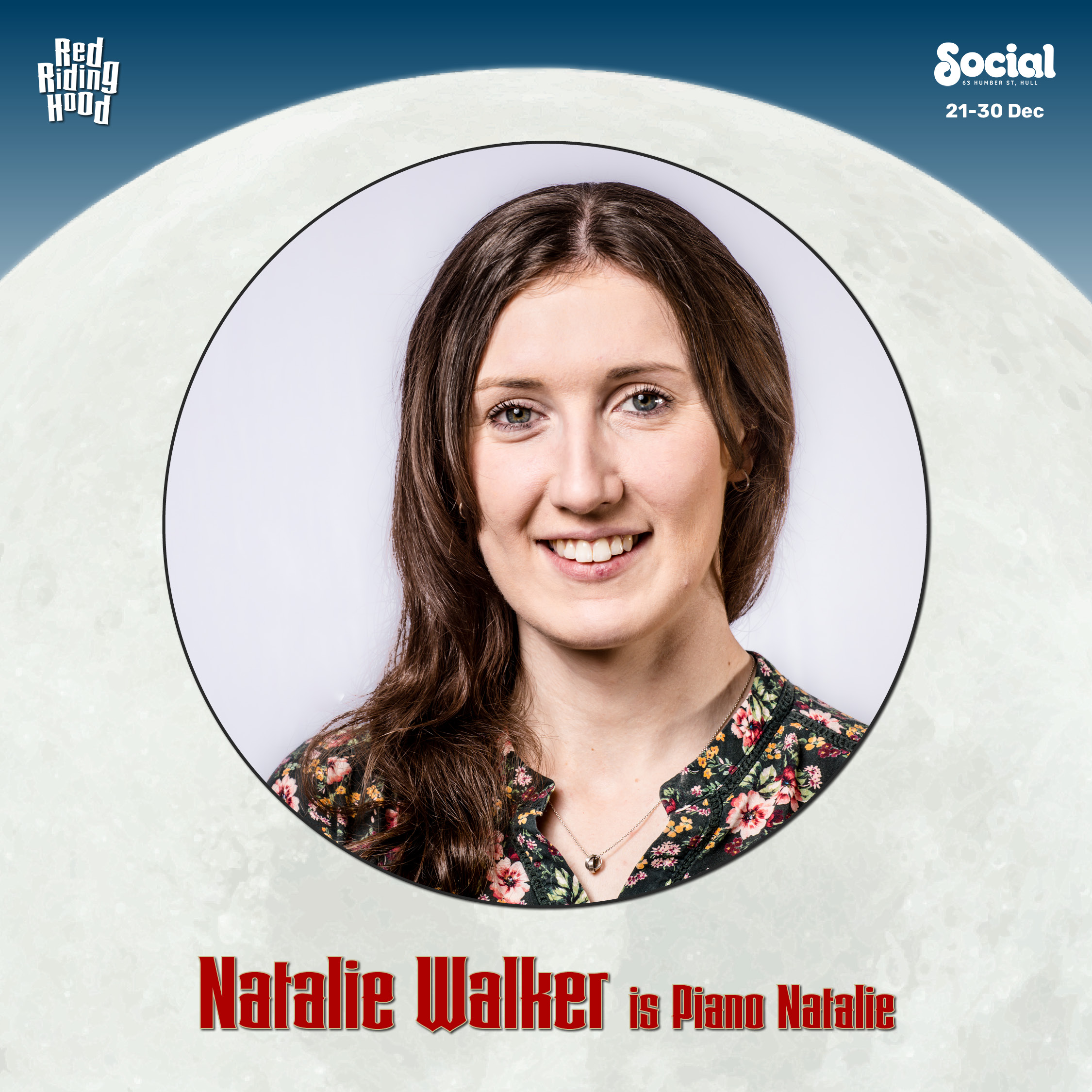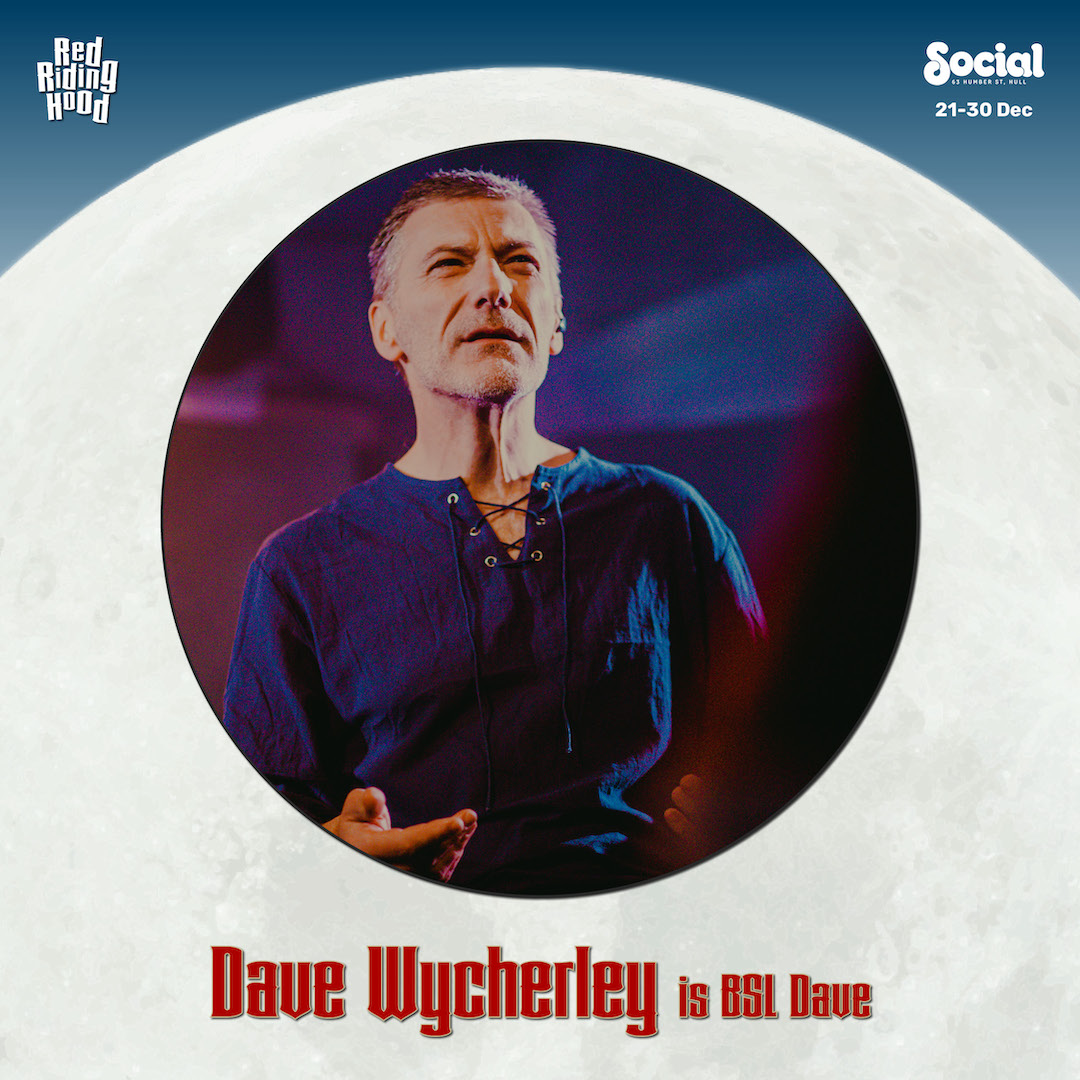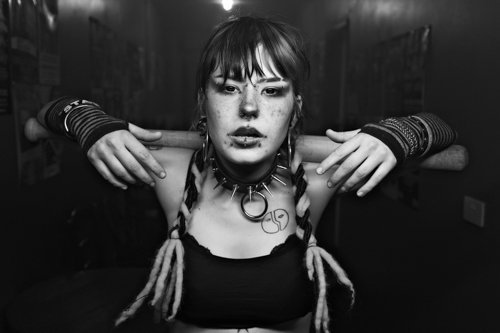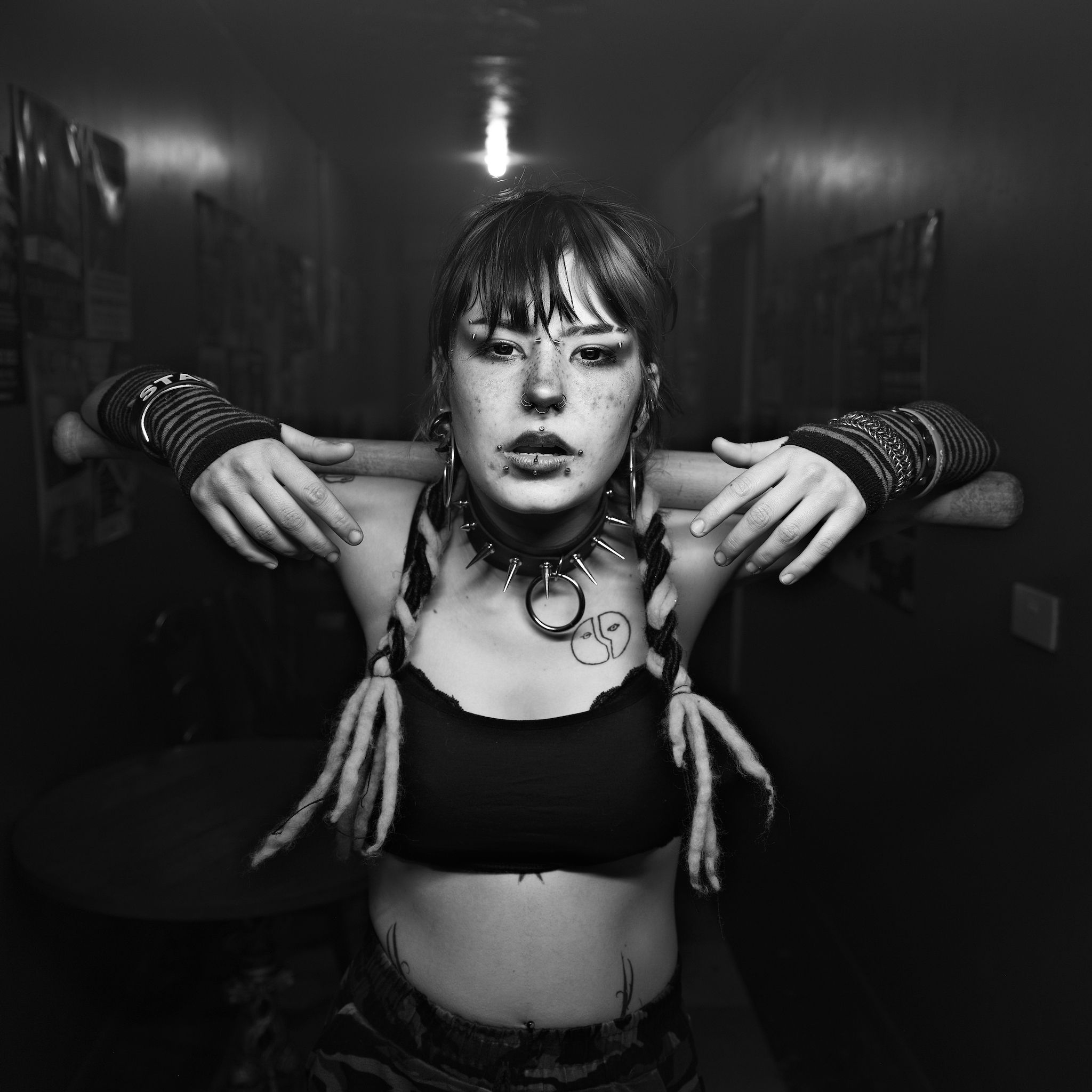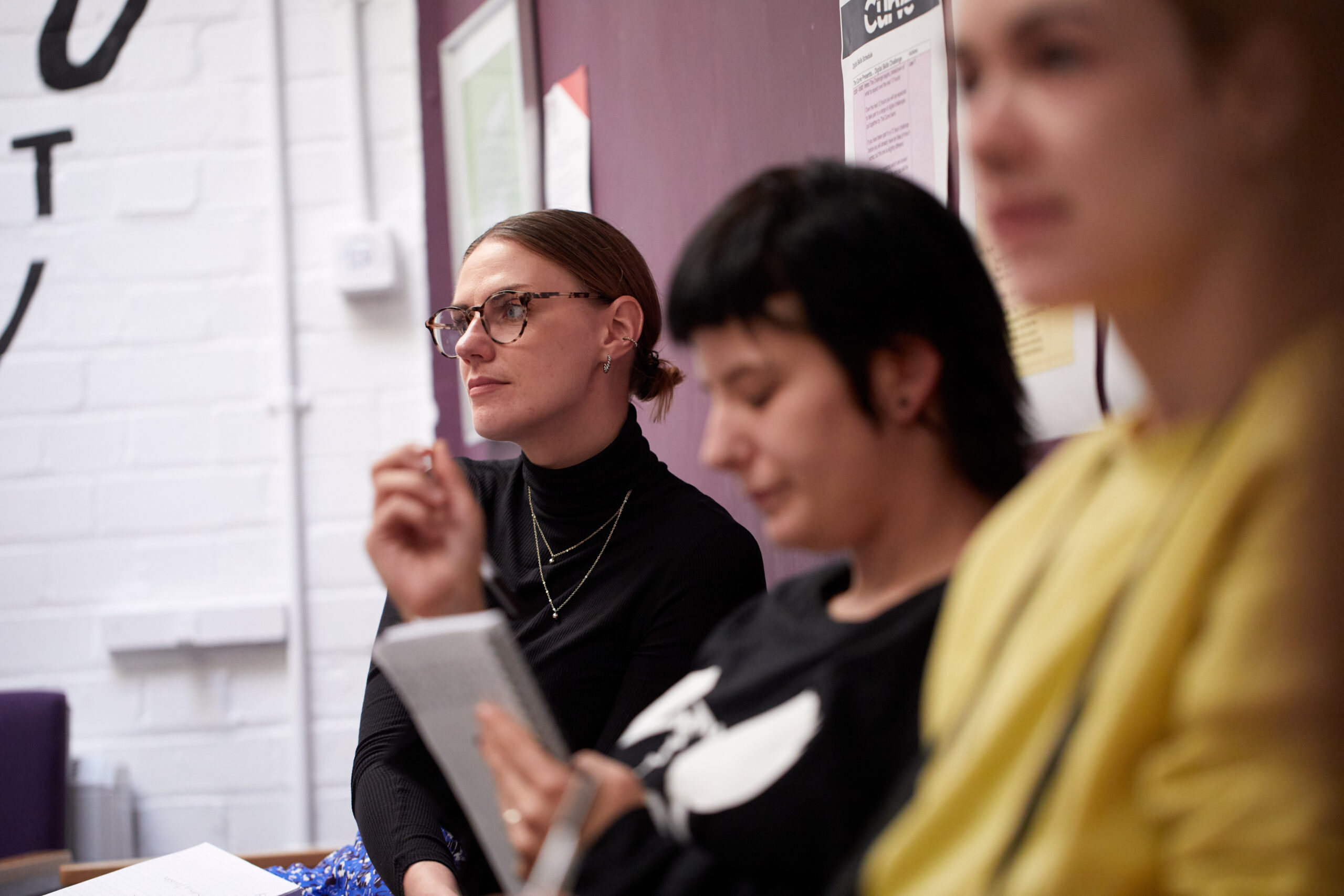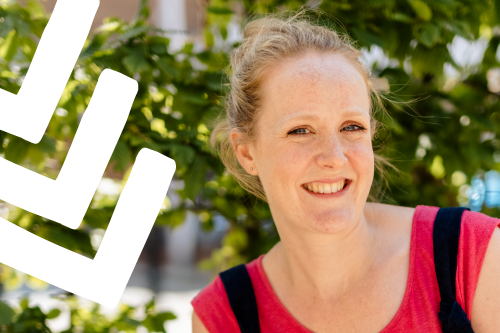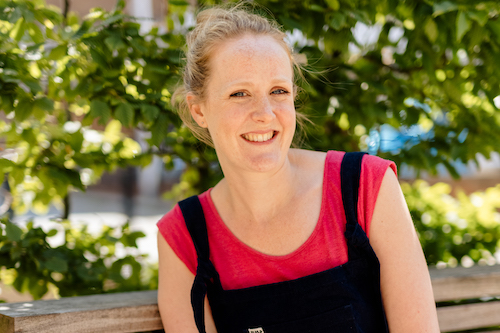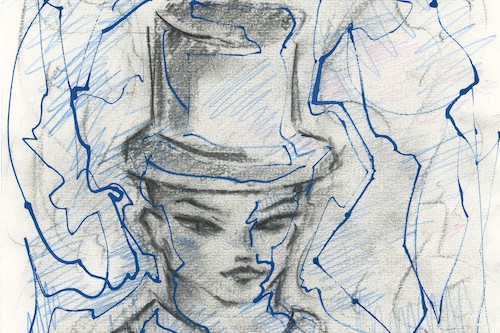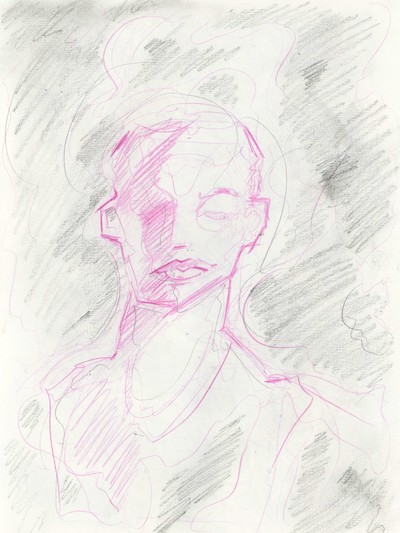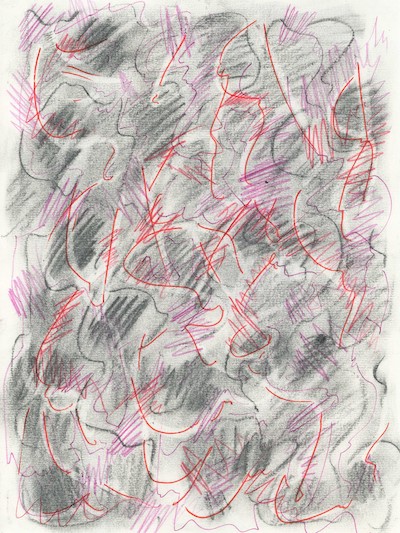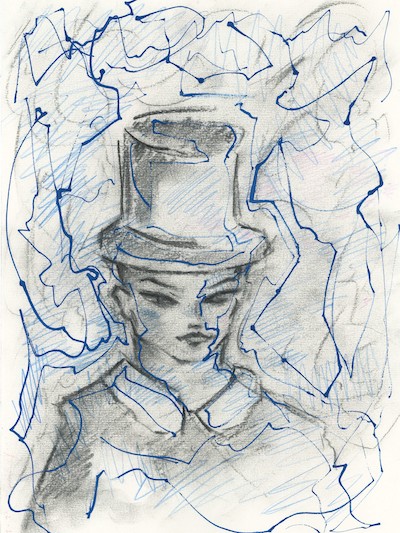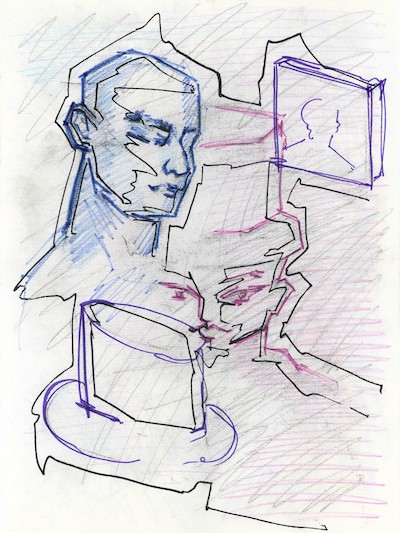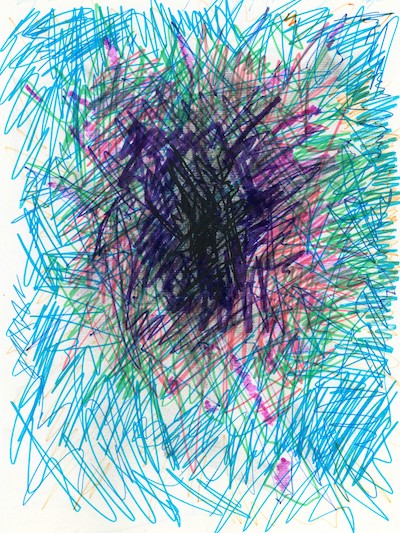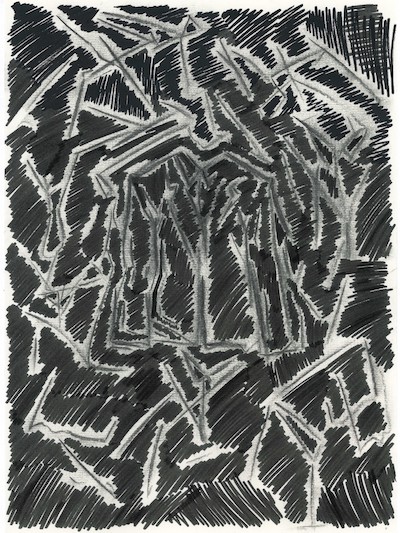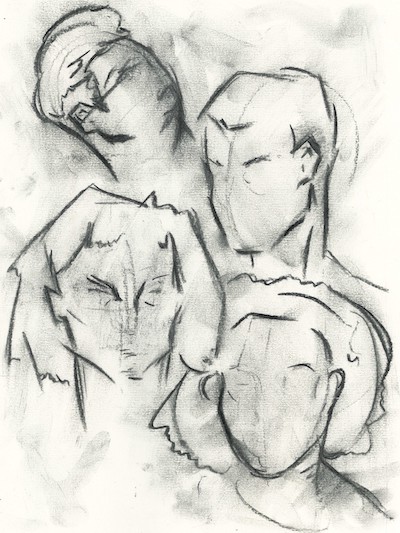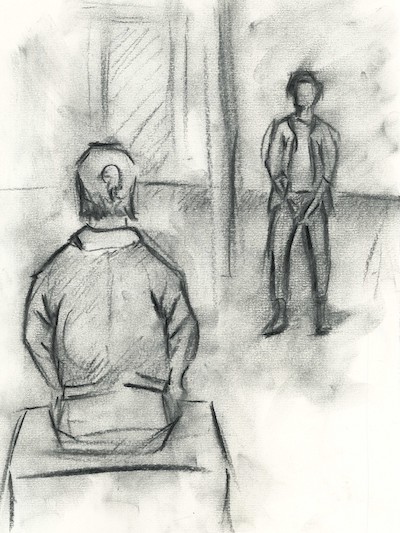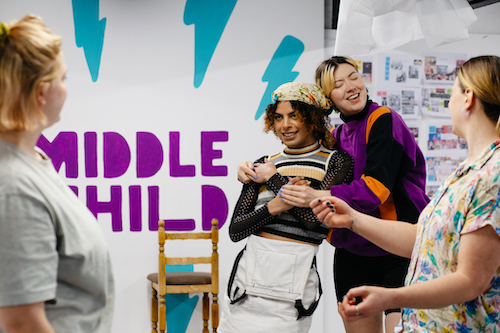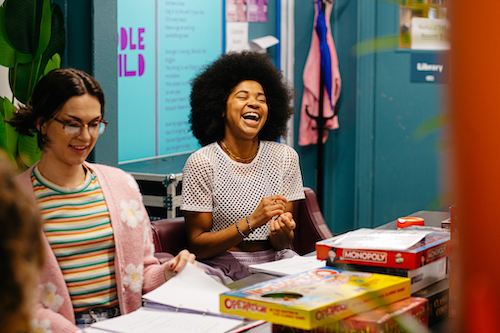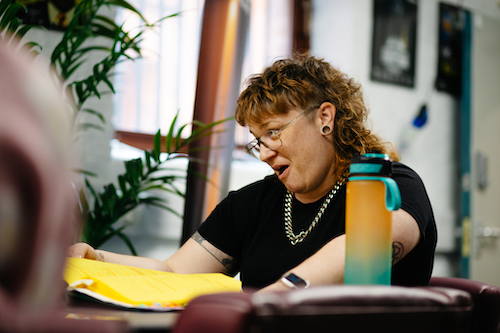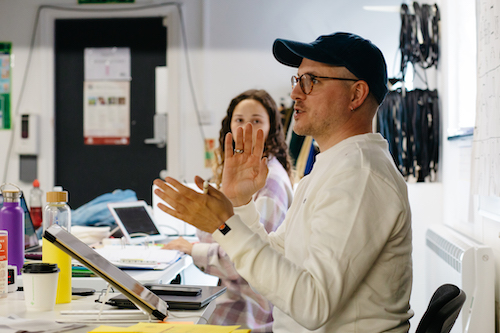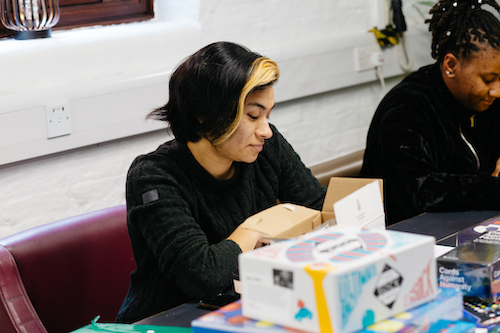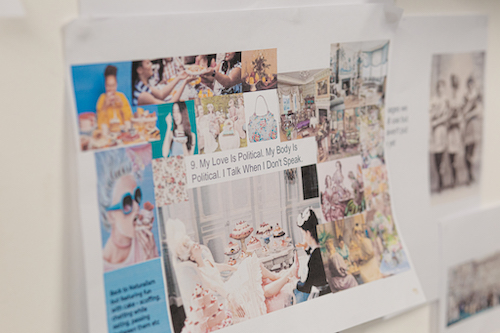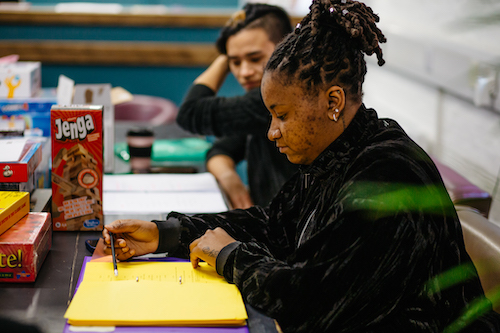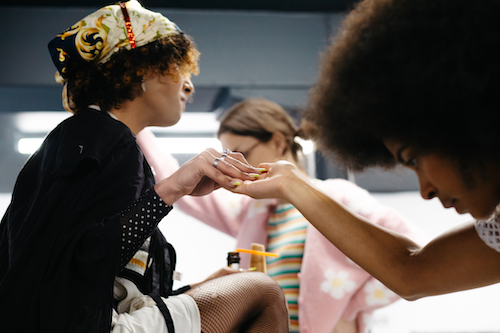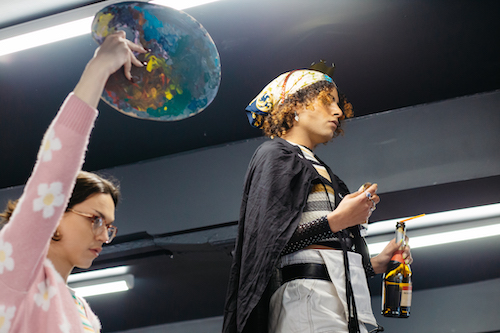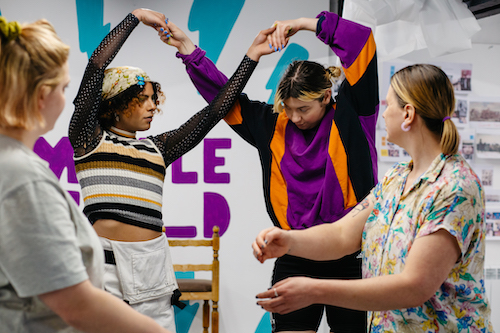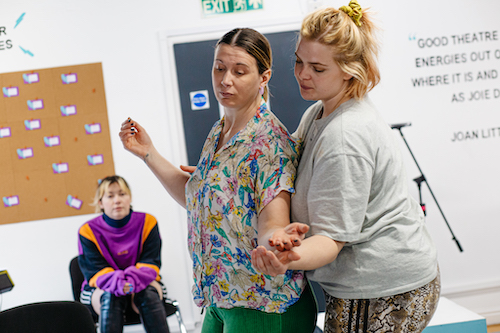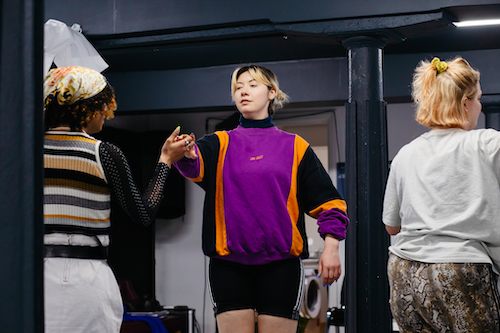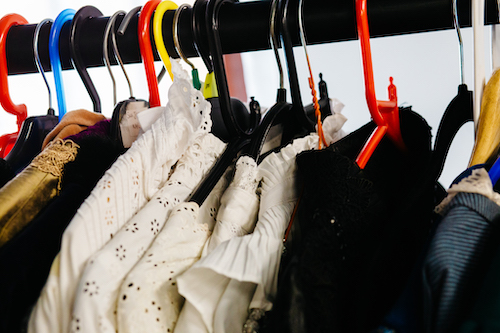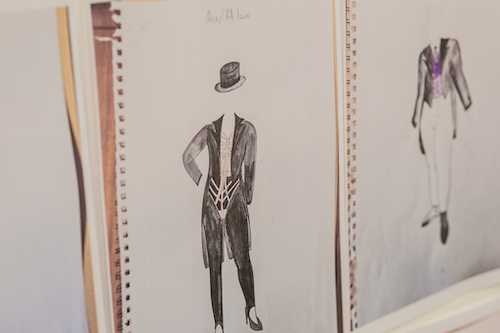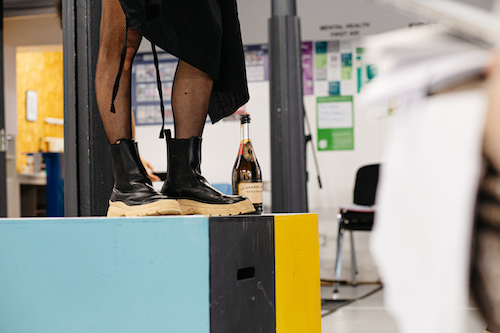Where did the inspiration come from to write Modest?
About five years ago I listened to the first ever episode of Malcolm Gladwell’s Revisionist History, ‘The Lady Vanishes’, where he talks about Elizabeth Thompson: the Victorian painter who became famous overnight and how she almost became the first woman elected into the Royal Academy of Arts.
Whilst I was listening to the episode, I was really drawn into the story and I thought: “This would make a great play. Someone should write that.” It took me another year before I came to the realisation that that someone could be me.
I used it as an inspiration, I suppose, for the work I was about to make with Middle Child. I just thought that it was just a really good story that I could use as part of my research, or use to influence me into making a completely fictional play.
Which I did – write a fictional play – with that in mind, but actually really didn’t like the thing I’d written. After about six months of working on it being like “it’s not very good”, I threw it away.
It’s one of the scariest things you can do as a writer, but also one of the most satisfying. Throwing away a whole draft is like ripping off a plaster. It feels really good.
Then I spoke to Paul [Smith, co-director of Modest and Middle Child artistic director], and I just said, “That story about Elizabeth Thompson that we have been using as influence, could I just write her story? Could I just take her and write that story?” He, being someone who is big on risk taking, just went: “Yeah, go for it. Do it and see what happens.” So I did.
What do you think it is about Elizabeth that continually brought you back to writing her character?
Real people often aren’t what you want them to be. Their stories don’t always fit into the perfect narrative. But that’s what I loved about Elizabeth and this moment in her life. And it was just that, a moment; I only explore five years in the play.
This is where the first idea came that the Elizabeth in the play should be flawed; she doesn’t do what the modern audience would want her to do. She describes in her autobiography how she missed out getting elected into the Royal Academy, finishing with the devastating line: “The door has been closed. And wisely.” Ultimately accepting their decision and agreeing with it.
There were other lines from her autobiography that really drew me in, painting a picture of who Elizabeth could have been. One of my favourites, “I will single myself out”, ignited the idea that my Elizabeth would be determined and gloriously arrogant.
How truthful did you feel your portrayal of Elizabeth needed to be as you were writing her?
I began as close to fact as history allows, reading her autobiography, looking at essays about her and her art. There was not actually that much written about her, but there was enough to actually start understanding what happened and to look into her character.
The only way I could really think about her actual character was from her autobiography. There were certain lines in her autobiography that really stood out that made me think about her being really determined. She knew what she wanted and that’s what really came across for me.
But it became really clear, pretty quickly, that I needed to create a fictional character. The Elizabeth in the play is not the ‘real’ Elizabeth, she can’t be, and I wouldn’t want her to be. I needed to create a character that fitted my purposes, so that’s when I started straying away and I just did that happily.
I never wanted to write a factual piece about Elizabeth Thompson. That was really freeing, the minute that I started thinking that I don’t know the real Elizabeth and I’m never going to know the real Elizabeth, so it was great to dive into creating a completely fictional one.
Saying that, I still wanted to have elements, or a flavour, of the real woman. That’s why I’ve kept some direct quotes from her autobiography in the play.
I found it a real tricky balance throughout about things that happened to her and what facts I needed to keep, which ones I could change and which ones I could mould to suit the story. Real life doesn’t work in a linear narrative like how we tell stories.
There had to be certain things where I needed dips, or I needed the energy to go up, or the energy of a crisis point at a certain moment in the play, so I had to mould that a little bit.
I didn’t want to play around with the actual fact facts – time scales and things like that -0 and I really tried not to, but I think something that I found was I had to let go a little of that.
In the play the first scene title is “It’s All True Apart From When We’re Lying” and I think that gave me the license to be like, yeah, this is what happened but I’m going to lie and I‘m going to be okay with that.
What is your usual writing process and how was writing Modest a different experience to writing previously?
My process of writing Modest was mainly different due to the amount of time I’ve been writing it. I was first commissioned by Middle Child five years ago. It’s been a long process.
It wasn’t meant to be that long, but the pandemic pushed us back and I had two babies in that time too.
It’s been hard at times, wondering if was ever going to happen, but also a bit of a luxury, to have such an extended amount of time meant that I could really immerse myself in it. Not that I’ve been writing solidly for five years, far from it. I’ve had two lots of maternity leave for starters.
It’s been me dipping in and out of it, me being a parent and struggling with having newborns and three-year-olds. But the play’s been there, at the back of my mind, for a long time, bubbling away.
It has been a luxury because the play has really evolved and it’s had the time and space to do that. My writing process in general has probably changed as well.
I could never write in the afternoons, so I used to just write for about two or three hours in the morning. As my time has been pressured more by having kids, if I’m honest, I find that I have to be less picky about when I write, so I try now to just write whenever I can, while still having a healthy work-life balance.
What is the draw for you to writing powerful women?
I’m really drawn to power, or the lack of it. It was my mentor who pointed out to me that I write about power a lot. I always seem to return to characters that are grappling to get power after having it taken away, or never having any in the first place. It’s about agency and not feeling that they’ve got that.
The characters that I write are often people that I’m not, or that have elements that I would like to have in my personality but don’t. I’ve loved writing Elizabeth, she’s unapologetically self-assured and I think I would like that in my own personality.
Making these characters 3D and making them flawed – deeply flawed in most cases – is really good as well. I never wanted Elizabeth to be the saviour. You’re not going to watch it and go “oh my gosh, she’s got all the answers”, because I don’t have all the answers.
Writing a play is a writer saying: “I don’t have all the answers, I’m going to write about how I don’t have all the answers and see where we end up.” And that’s okay. I don’t think you can go see a piece of art and think this is the answer to everything.
At what point did Modest take on its current form and become a piece of drag, cabaret and queer art?
That mainly happened when Luke [Skilbeck, co-director of Modest] from Milk Presents came on board. I sort of always knew that there was going to be some element of drag in it, because we always knew that we were going to have to double-up casting.
The RAs, the men in the show, say some really disgusting things and are really misogynistic and it felt like that had to be sent up. As I was writing it, I never thought this was a really serious piece. It had to be heightened in a way and we knew that drag would do that.
During one of the R&Ds me and Paul had a chat and we both agreed that we needed someone who knew that craft and Luke came instantly to mind.
Luke read the play and thought, actually, there’s lots in here that lends itself to queer art, to cabaret and to drag and then they came on board and then we sort of spent the next four or five drafts bringing that in.
Really, the story stayed exactly the same. It was more bringing out elements of the script to make it suit the form a bit more.
What is the process like for yourself as a writer to open the doors to a creative team?
You start by being in your bedroom on your own for hours at a time, just you and your laptop, occasionally sending it to people and hoping that they like it – and dreading their notes – to then suddenly being in a room full of 30 people.
It’s daunting and overwhelming but really exciting. I think you have to just trust that everyone knows their craft. You’ve done the writing, you’ve put the words down and then you just have to just trust that everyone else is going to take that and do what they do.
They know what they’re doing and that’s the really cool bit of it. The actors know what they’re doing, the set designer knows what they’re doing, the lighting designer knows what they’re doing, the directors know what they’re doing and it all just comes together. It’s collaborative.
Plays aren’t meant just to be read, they’re meant to be seen and performed.
How does this process feel for you from being a founding member of Middle Child to now being the writer on the largest show Middle Child has put on to date?
I think it’s surreal. I think the two things, being a founding member and being the writer of Modest, feel very different. I never ever, ever would’ve imagined when we started the company that I would have written this show or that I would be here.
Honestly, ten or eleven years ago, I would not have believed that at all. I can’t really marry the two things together.
What are your hopes for Modest?
I want people to see it mainly. It’s going to be a really special show and it deserves to be seen. People should see it, people are going to really enjoy it.
It’s joyful and there are moments of hope in there as well. I think it’s going to be a great show that should go far.
- The world premiere of Modest opens tonight at Hull Truck Theatre, playing until this Saturday 27 May. Modest will then tour the UK, concluding at Kiln Theatre, London.


